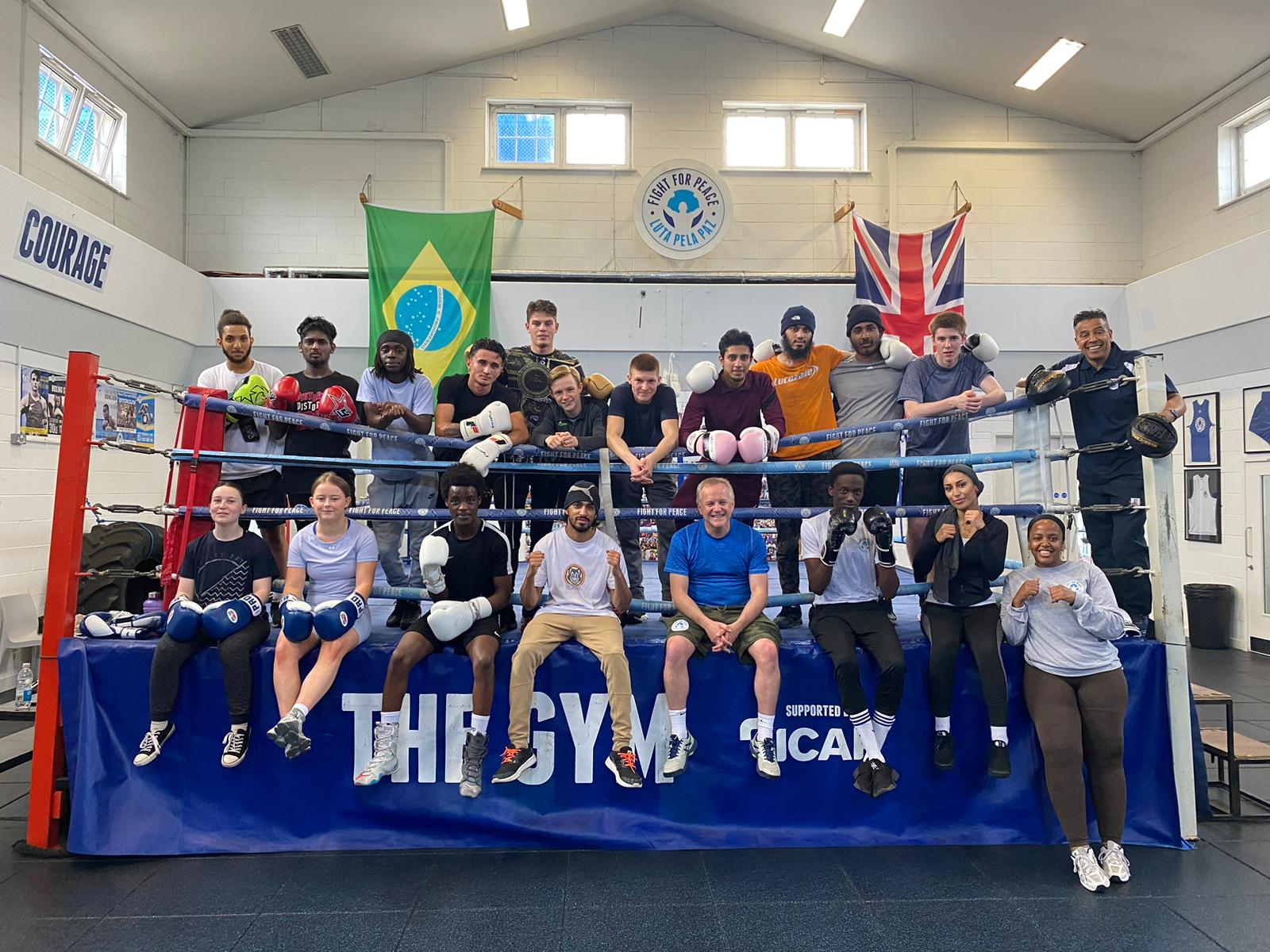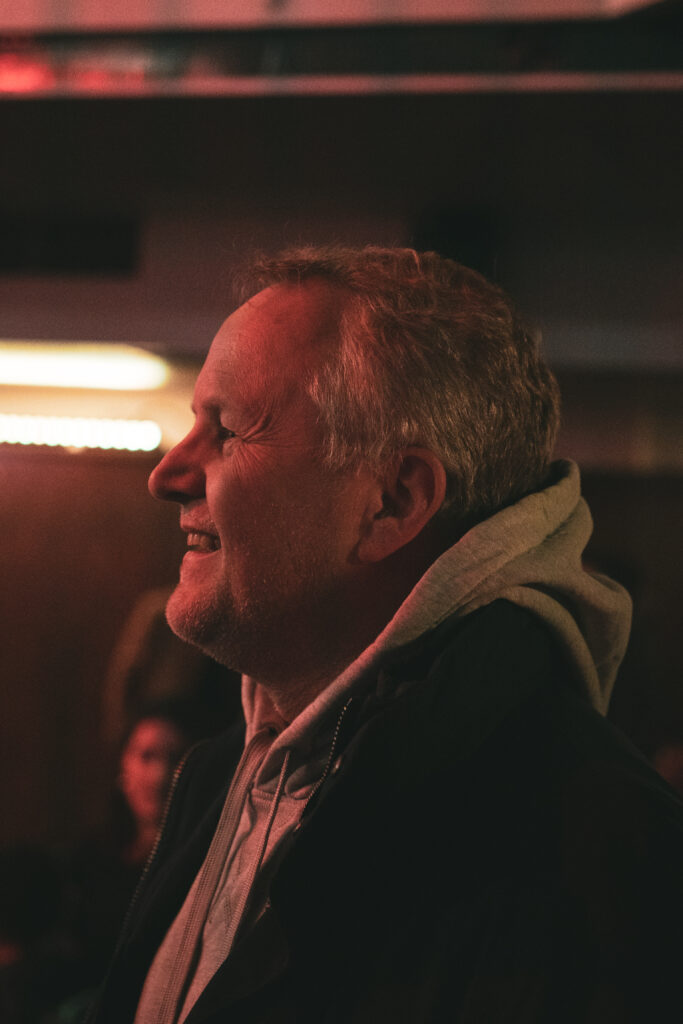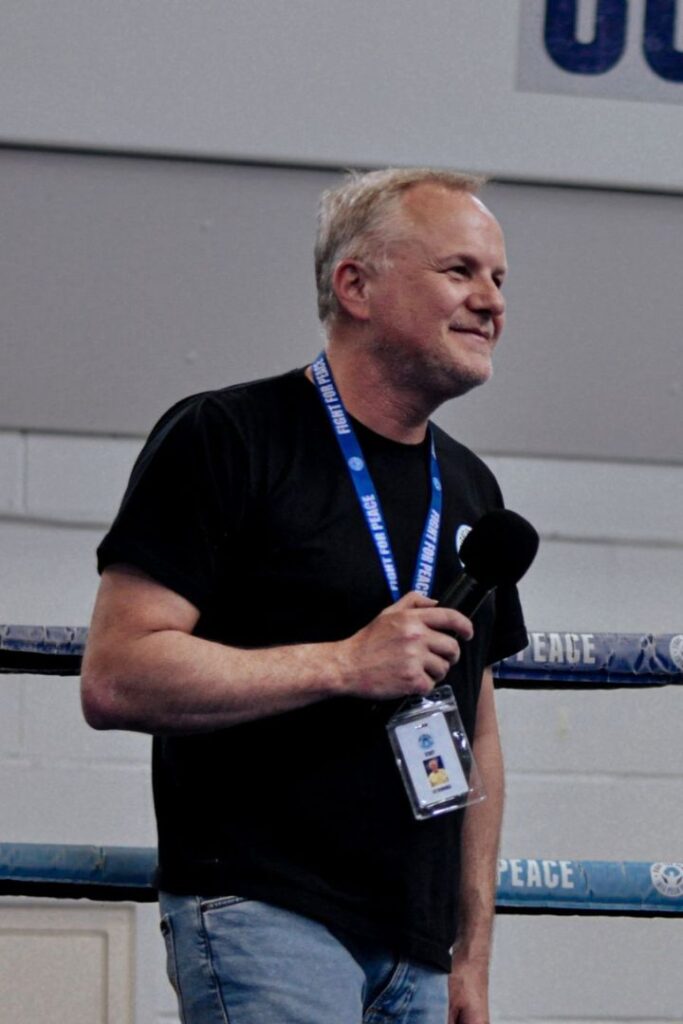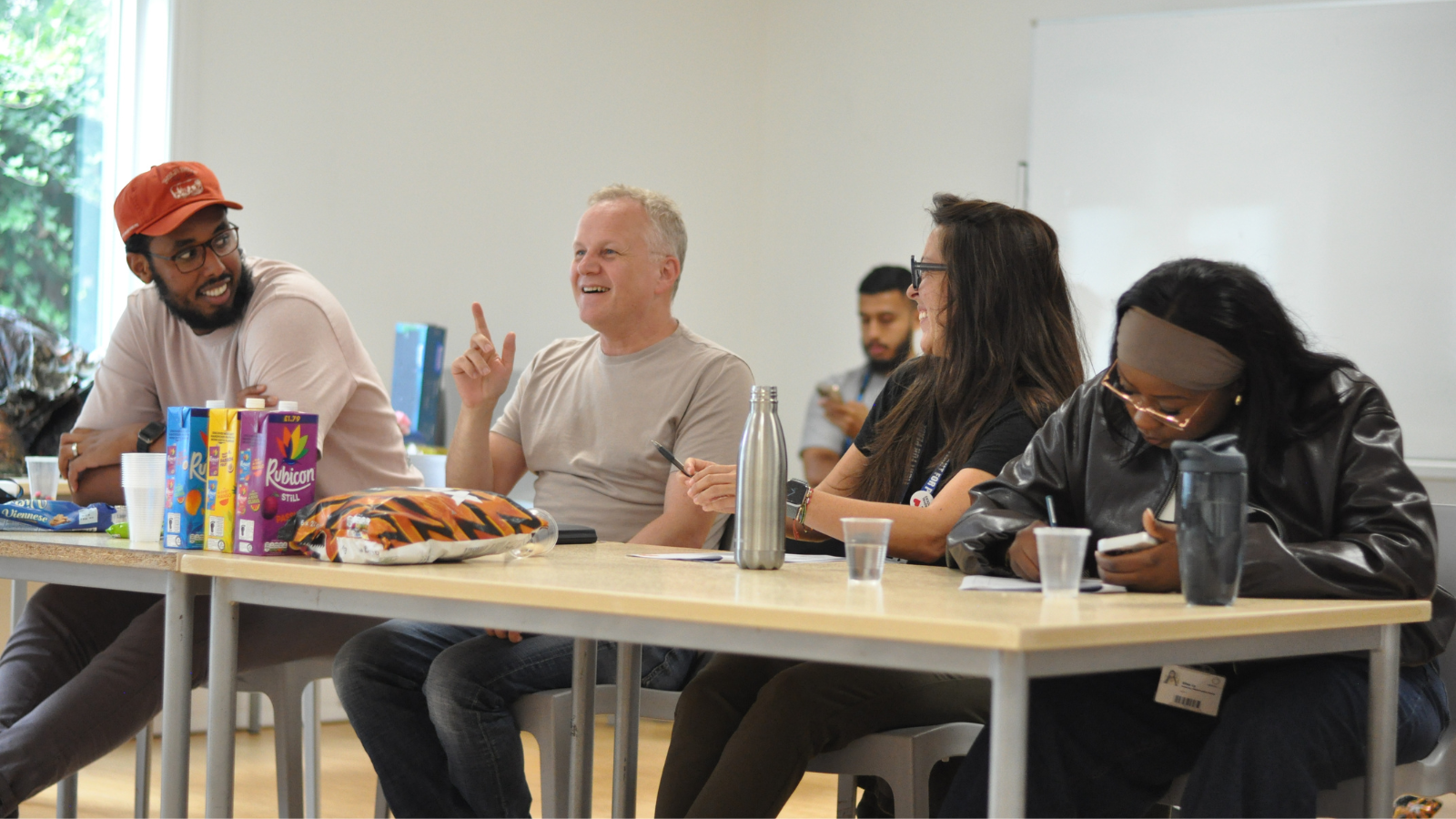Lee Hemmings has been CEO of Fight for Peace since October 2023. Before landing this role, his career has been in the finance and football industry. What drew him to an organisation such as this was its mission to empower young people through a holistic vision of combining combat sports (such as boxing and martial arts) with employability support, educational opportunities, youth mentoring, and youth leadership opportunities.
Every week at Fight for Peace is different, but the drive is always the same. This isn’t a diary of tasks; it’s a fast-paced journey where purpose and people are at the heart of every decision. Leadership at Fight for Peace is about staying grounded in our mission, even as the world around us shifts – a challenge and a privilege I navigate every single day. With this in mind, instead of describing my week in the parameters of the usual Monday to Friday routine, I’ll instead illustrate it through commonalities and challenges.

Leading in Real Time
One of the defining challenges of leading an NGO like Fight for Peace is the constant need to adapt without losing our way. Over the last two years, we’ve become far more vigilant and risk aware, prepared for speed bumps but remaining steadfast. The reality is that most challenges come with a financial cost and in the current environment robust budgeting is hugely important. Right now, there’s very little room to invest in new areas of the organisation. This can feel difficult when funders are often looking for innovation and staff want to see ambition. The reality is that our methodology has been tried and tested for over 25 years, and our focus has to be on continuing to deliver excellence. What helps is being open about this and finding ways to show that even within an organic approach, there is space for real improvement and excitement.
Local Community Moments to Big Strategic Changes
Our Academy in east London is where our local community work takes place and this is where I base myself throughout the week. Seeing our services in action everyday, allows me to see our impact and what needs improvement. For instance, I was extremely moved to see a mother drop off one son and then leave with another who used a wheelchair. It highlighted a significant gap in our programming, as we were unable to offer sessions for all young people, regardless of ability. This experience fueled our determination to create a dedicated Special Educational Needs and Disabilities (SEND) class at Fight for Peace, which launched in April 2024. I’m incredibly proud to say that many of our coaches have since been trained to work with children of all abilities, ensuring our programme is more inclusive and accessible.


Lee at a pro boxing debut for Coach Dylan Adebisi (left) and a Fight for Peace event (right)
Making the Mission Real
Making the mission real and reminding others of it is key to the way I lead. I ask myself daily: ‘Is everything we do – from a fundraising email to a new partnership – aligned with our Theory of Change?’ Our Theory of Change is a blueprint that details the organisation’s inputs, target groups, activities, and outcomes. It governs and justifies every decision.
Yet our theory feels meaningless without the stories of young people that bring its impact to life. One memorable story that I often recall is one young person, who was referred to Fight for Peace for support with her mental health. The lessons and growth I saw from her at our Academy was incredible – she went from strength to strength, progressing from a member into a youth worker. Her story, and many others, are a constant reminder to myself and the team of why we do what we do.
Unseen Labour of Leadership
There are many aspects of leadership that are rarely visible and the resilience this role demands is easy to overlook. You read lots of stuff about showing up and it’s more important than you realise, especially when you need to be the one to set the example. This requires perseverance, but thankfully, I’m not in this role alone. I have a fantastic operational leadership team that are all Fight for Peace stalwarts, as well as a good relationship with our chair and our board of trustees who act as a source of counsel and guidance.
Closing Reflections
At Fight for Peace we’re focused on a global and local impact. This combination makes us somewhat unique, but it also means the challenge is in bringing everything together. Every week, needs evolve quickly, and the funding environment changes even faster than a strategic plan can anticipate. That forces us – me as a leader, and the organisation as a whole – to stay adaptable, while ensuring our resources and focus remain aligned to our mission. Whatever each week brings, our mission is our true north, a clear and unwavering reminder that our work is about supporting young people to reach their full potential.

